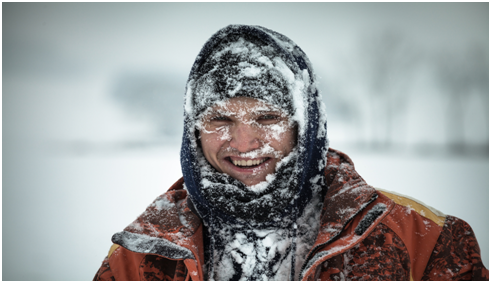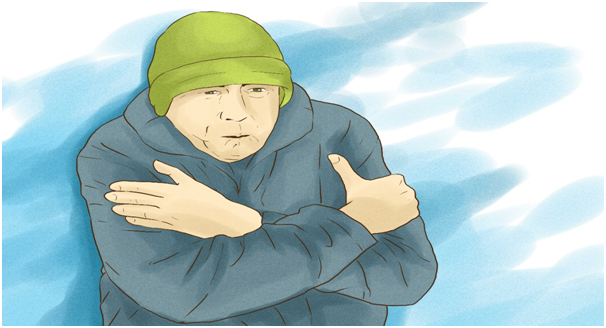The UK has a temperate climate which means that we don’t often see extremes at either end of the scale. It does not often drop too far below zero and we don’t often swelter in 40-degree heatwaves. Spare a thought though for those who live or work in some very cold environments. What dangers does extreme cold pose to the human body? Here are some pretty unpleasant things that can happen to exposed body parts in below freezing situations:
Skin freezes solid – Yes, this can happen to your extremities like fingers, toes, feet and anything else protruding from your body! The icy cold literally stops the blood flow killing off the tissue and resulting in the very real possibility of the body part falling off or needing to be amputated. Frostnip only freezes the skin but frostbite is a much nastier condition altogether and can freeze skin and the muscle, tissue and fat beneath it.

Frostbite can happen if you’re not wearing the correct protective gear but also when the wind is high, causing a much colder wind chill to affect you. Temperatures in some parts of the world have been known to drop to -40 degrees and if this happens combined with a wind chill, your skin can freeze within a matter of minutes. Even some furry animals can be affected, like the exposed tips of cat’s ears are susceptible to frostbite too. Stay warm this winter and check your boiler before the cold descends. For Boiler Repair Gloucester, try http://www.hprservicesltd.com/gloucester-boilers/boiler-repair-gloucester/
Core of your body – When the extreme cold penetrates your core, this is when things can get deathly dangerous. When the body’s temperature begins to drop from the normal 37 degrees, hypothermia can begin to take hold. Symptoms include uncontrollable shivering, quickened breathing, exhaustion – followed by acting like your inebriated with poor coordination, confusion and slurred speech. Breathing will now begin to slow as well in a process called hypoventilation. When the body’s temperature drops below 30 degrees, the person may stop shivering (which is a bad sign) and the person may not realise they are in a life-threatening situation due to mental confusion. What follows is unconsciousness, extremely shallow breathing and then death if not resuscitated.

Paradoxical Undressing – It’s become well-known that around a quarter of hypothermia fatalities involve victims undressing in their final moments. Ironically, the final stages of hypothermia include a dilation of blood vessels which make the victim feel like their skin is burning up. Instead of seeking warmth, the final act is to expose ourselves even more to the elements!
Frozen Corneas – Whilst this isn’t very likely during short periods of time, skiers who find themselves without goggles and suffer prolonged periods in freezing weather with high wind chill could freeze their corneas. It can cause blurred vision and it’s even possible to have contact lenses freeze to your eyeball! It’s quite quick and easy to thaw the area with a warm hand or compress but severe cases can take several weeks to heal completely and may even result in the need for surgery to deal with lost tissue problems. If you’re going skiing, don’t forget your goggles!
